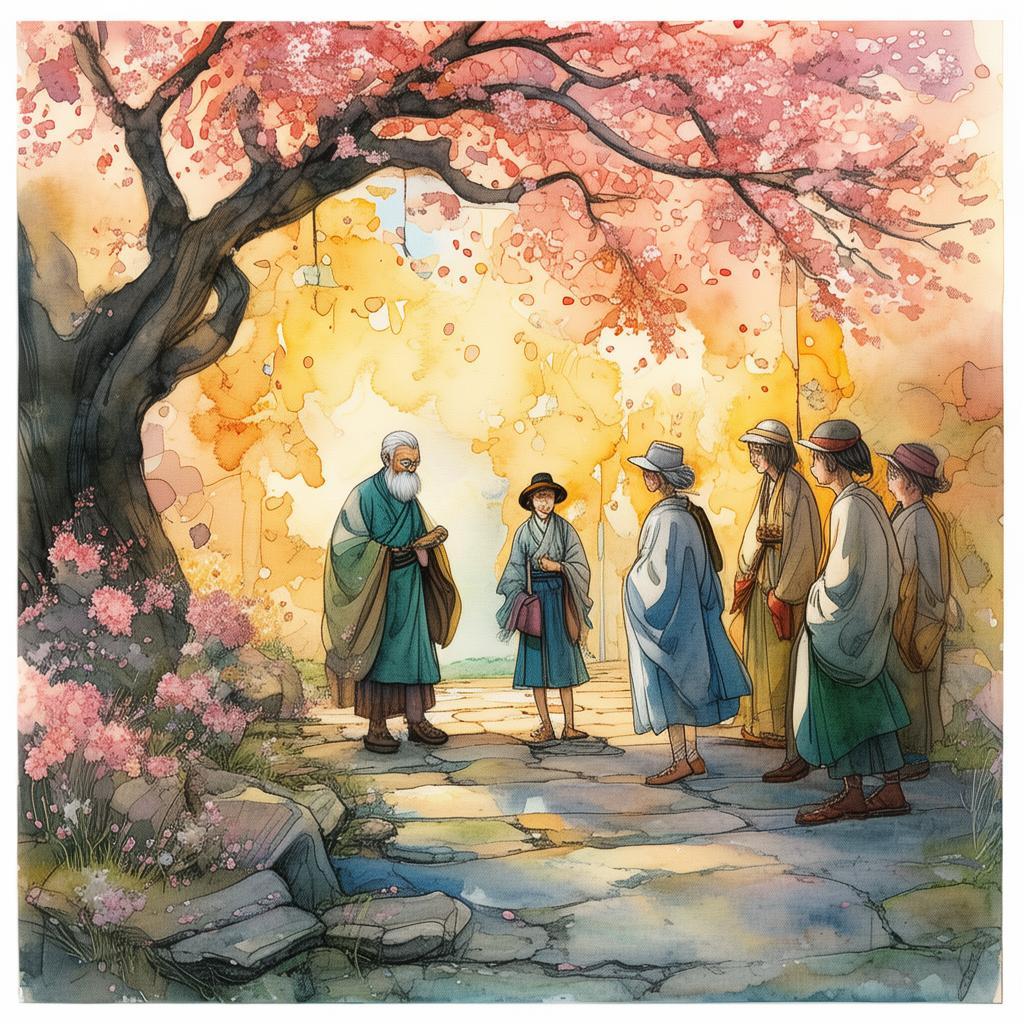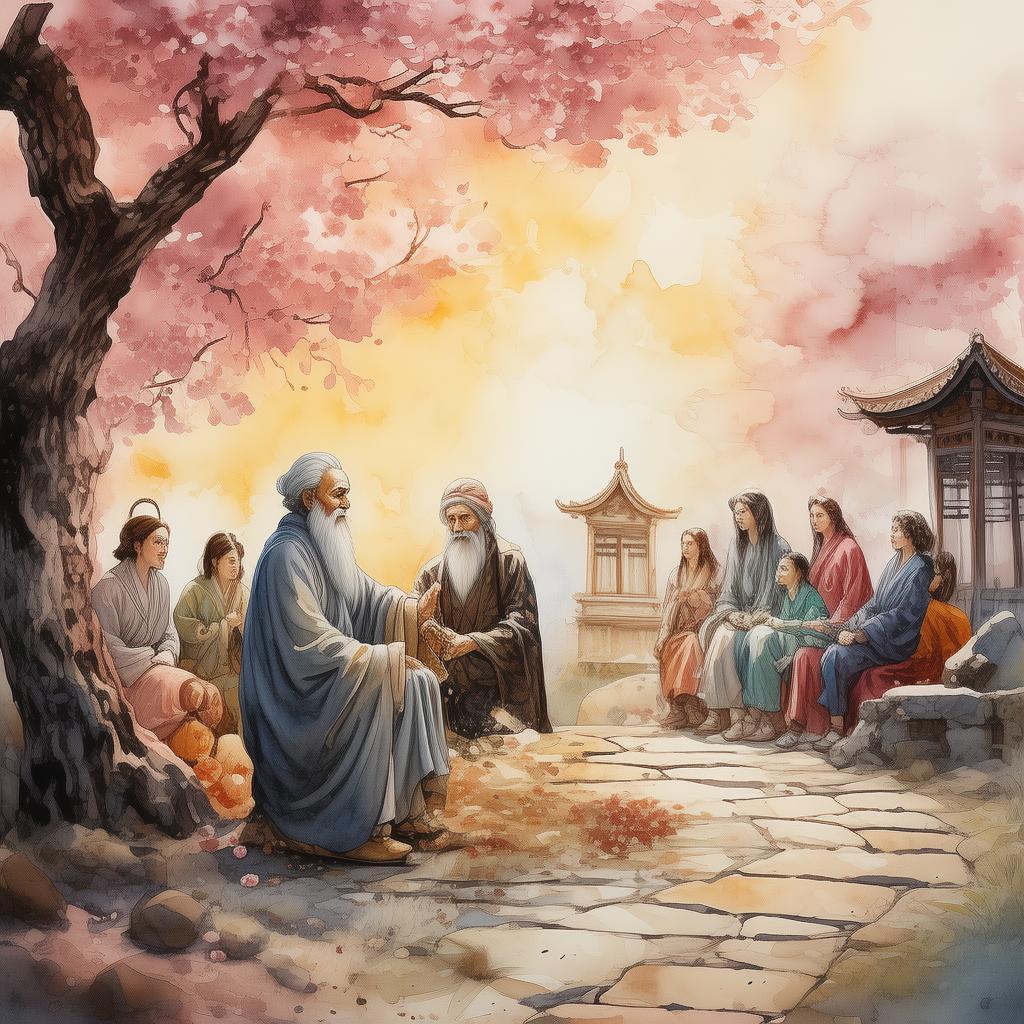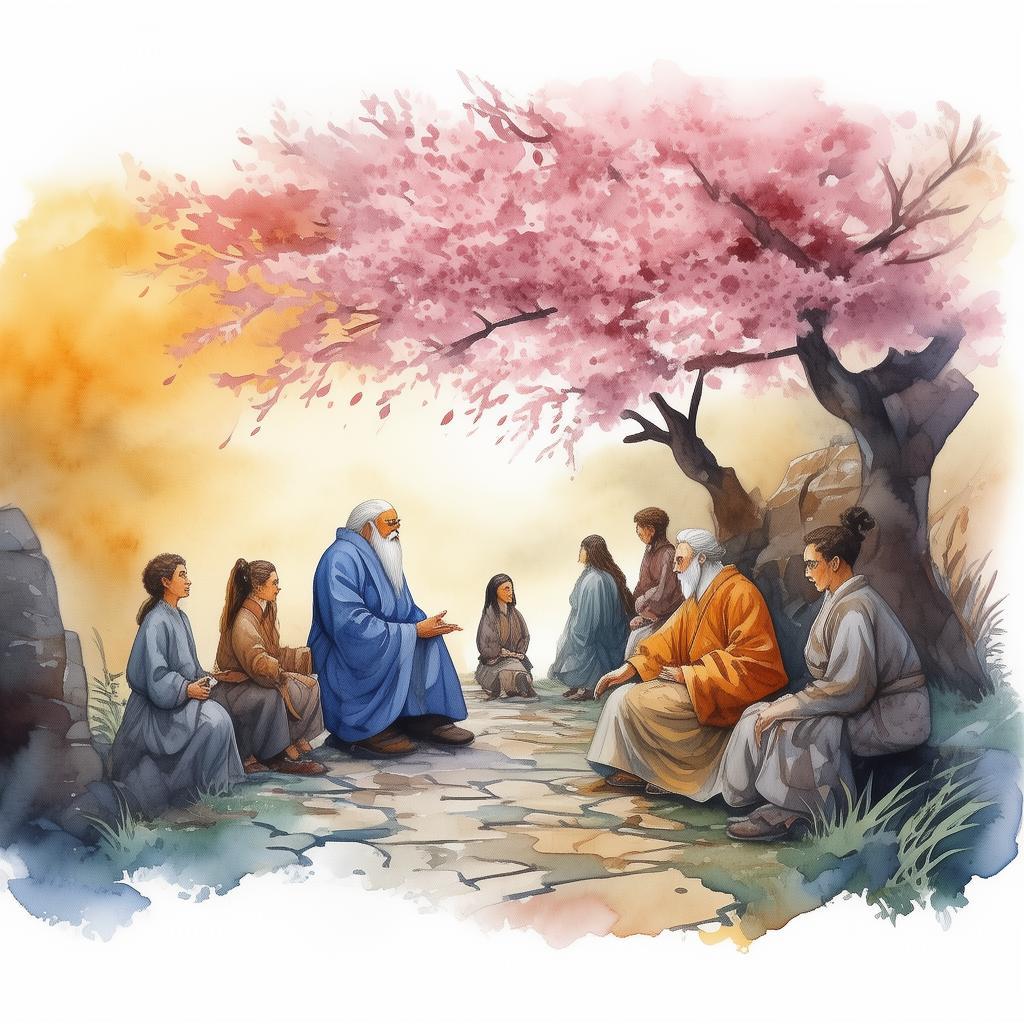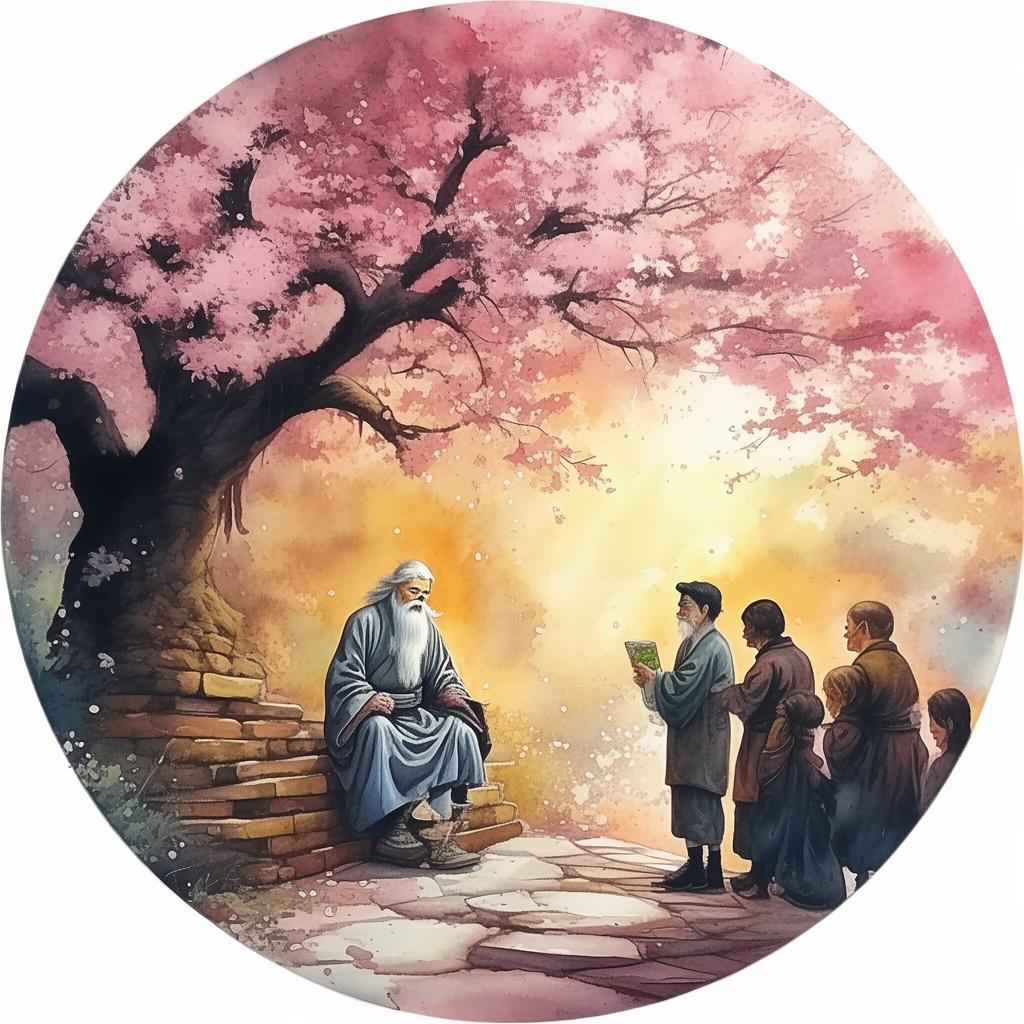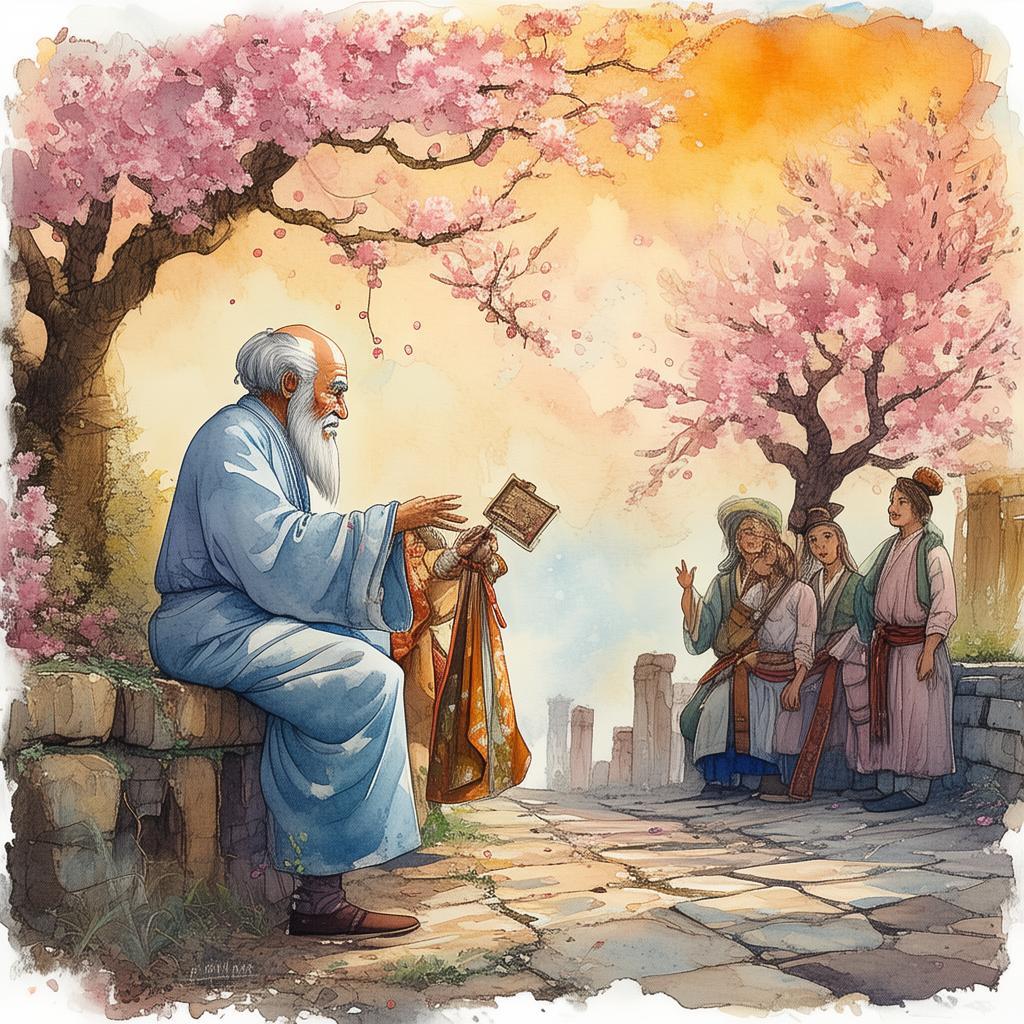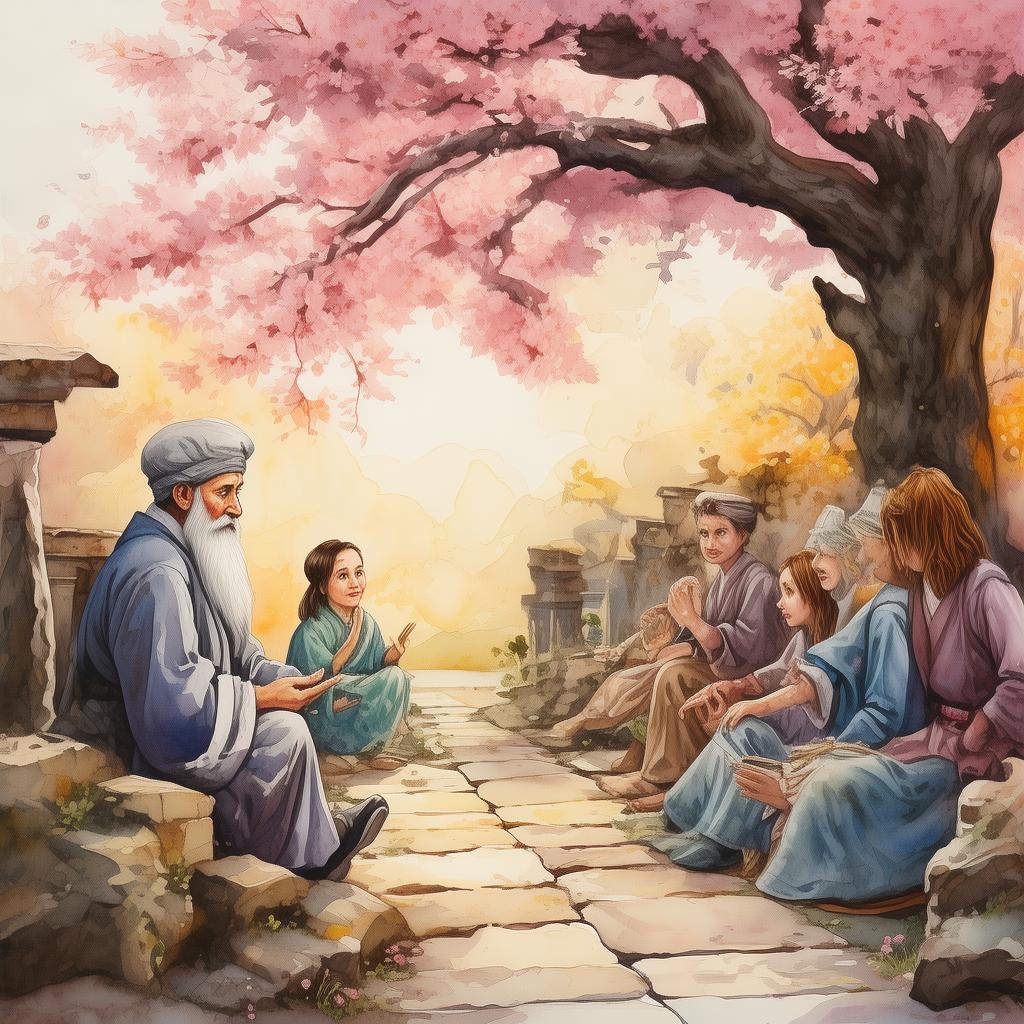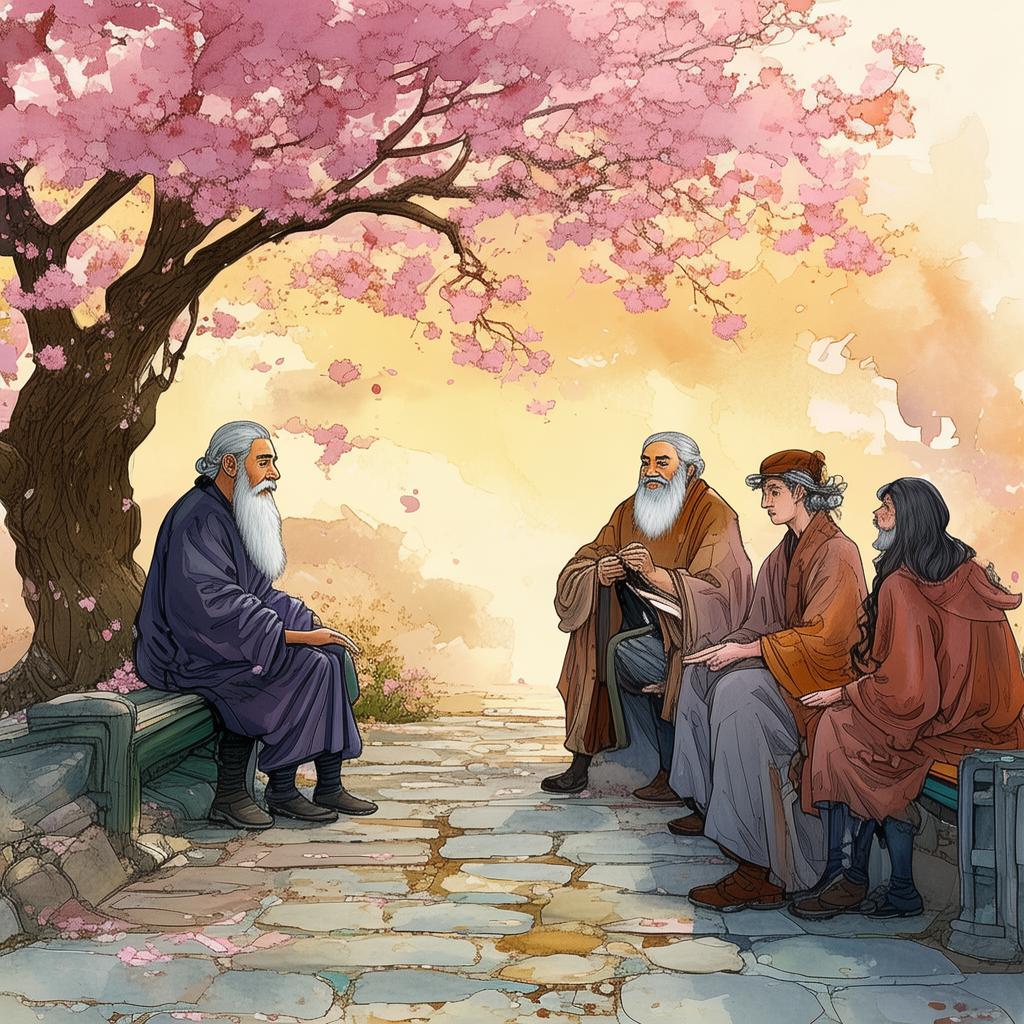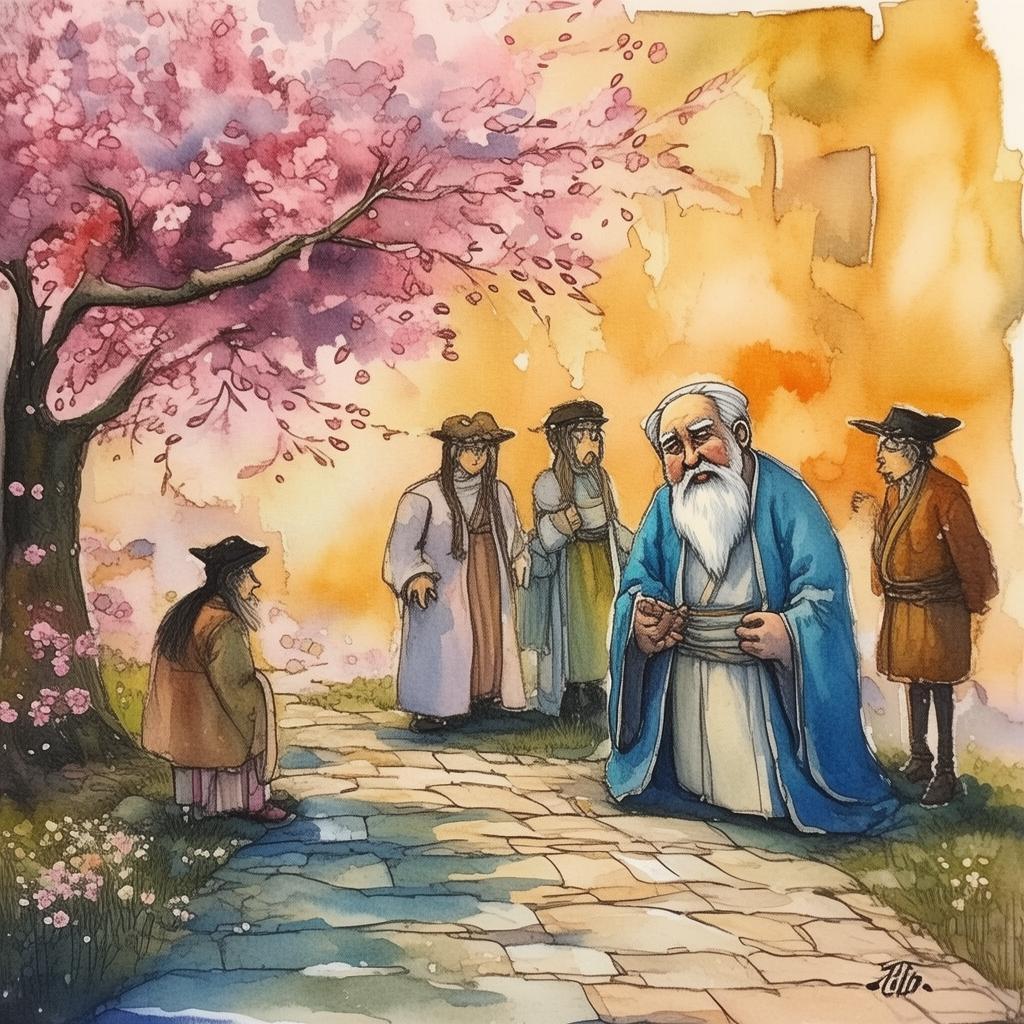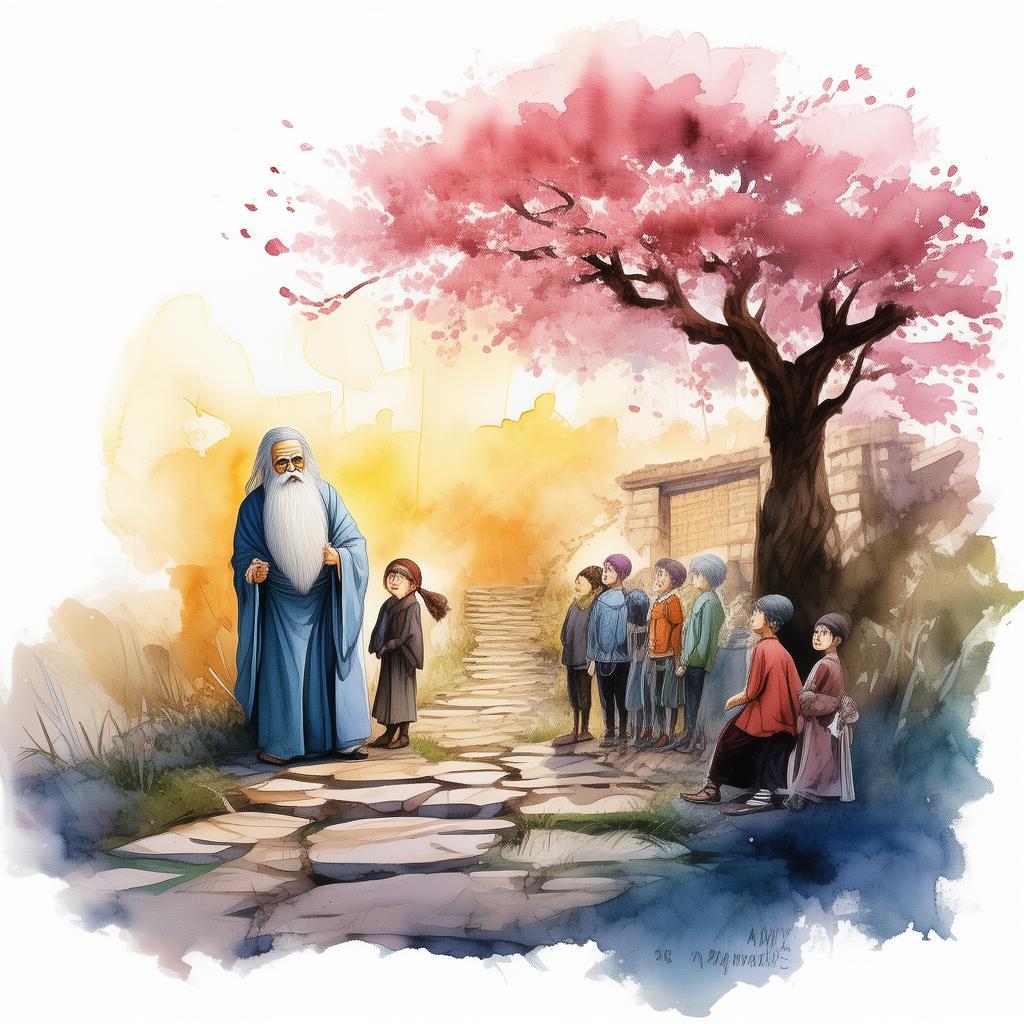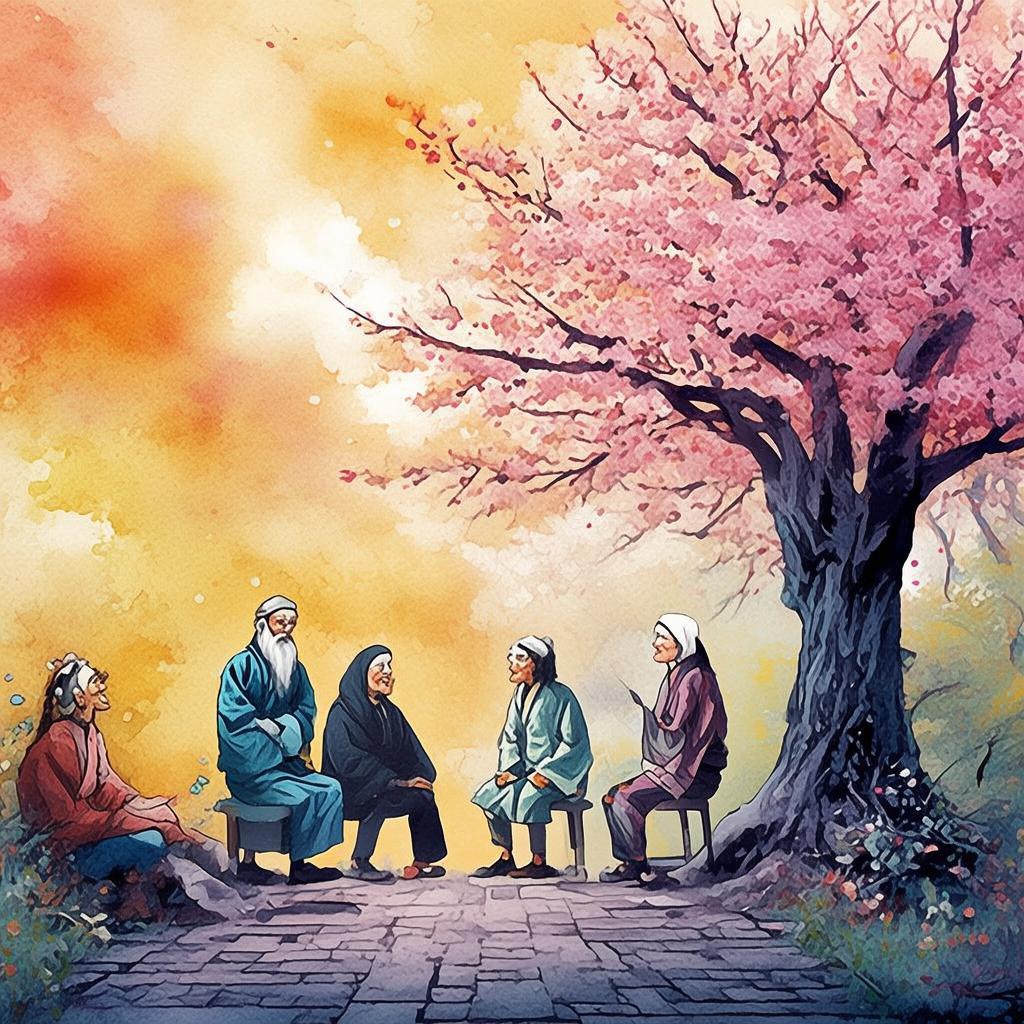The Bard's Echo Through Time
The troubadour's voice, a melody that could stir the soul of any era, had always been a beacon of hope and wisdom. Among the many tales of his adventures, there was one story that transcended time, a story etched into the fabric of the poetic ages. It was a story of a man who sang of the past, the present, and the future, and whose melodies were the echoes of ancient wisdom.
In the year 1195, in the heart of the troubadour's world, there lived a young man named Émile. Émile was not just a troubadour, but a time-traveling troubadour, a man who could sing of the ages and bring the past to life. His songs were filled with the stories of heroes and legends, of love and loss, of triumph and defeat.
One day, as Émile stood on the stage of an ancient castle, his voice carried through the air, reaching the ears of a young knight named Sir Cedric. Sir Cedric was known for his bravery, but he was also known for his stubbornness. He was a man who, despite his noble birth, often found himself at odds with the world around him.
As Émile's song reached its climax, Sir Cedric felt a strange pull, as if the very air around him was thickening, the world growing heavier. He turned, looking up at the troubadour, and in that instant, he was transported through time.
Sir Cedric found himself standing in the year 403 BC, in the ancient city of Athens. He was surrounded by philosophers, thinkers, and artists, the cradle of Western civilization. Émile, now in the guise of a wise old man, approached him.
"Welcome, Sir Cedric," Émile began, his voice filled with the wisdom of the ages. "You have been chosen to learn a lesson that will change your life forever."
Sir Cedric, bewildered but intrigued, listened as Émile began to recount the story of the ancient Greek philosopher, Socrates. Émile sang of Socrates' teachings, of his relentless pursuit of truth, and of his unwavering commitment to justice.
As the story unfolded, Sir Cedric began to understand the weight of wisdom. He realized that true power lay not in conquest or wealth, but in the pursuit of knowledge and the search for truth. Émile's song continued, taking Sir Cedric through the ages, from the birth of democracy to the fall of the Roman Empire.
Each tale, each melody, brought Sir Cedric closer to understanding the essence of wisdom. He learned from the stoic philosophers of Rome, the knights of the Middle Ages, and the poets of the Renaissance.
Finally, Émile brought Sir Cedric to the year 2019, to the troubadour's stage in the ancient castle. The young knight, now a man of great wisdom, turned to Émile.
"You have taught me so much," Sir Cedric said, his voice filled with gratitude. "I will carry this wisdom with me, and I will use it to better the world."
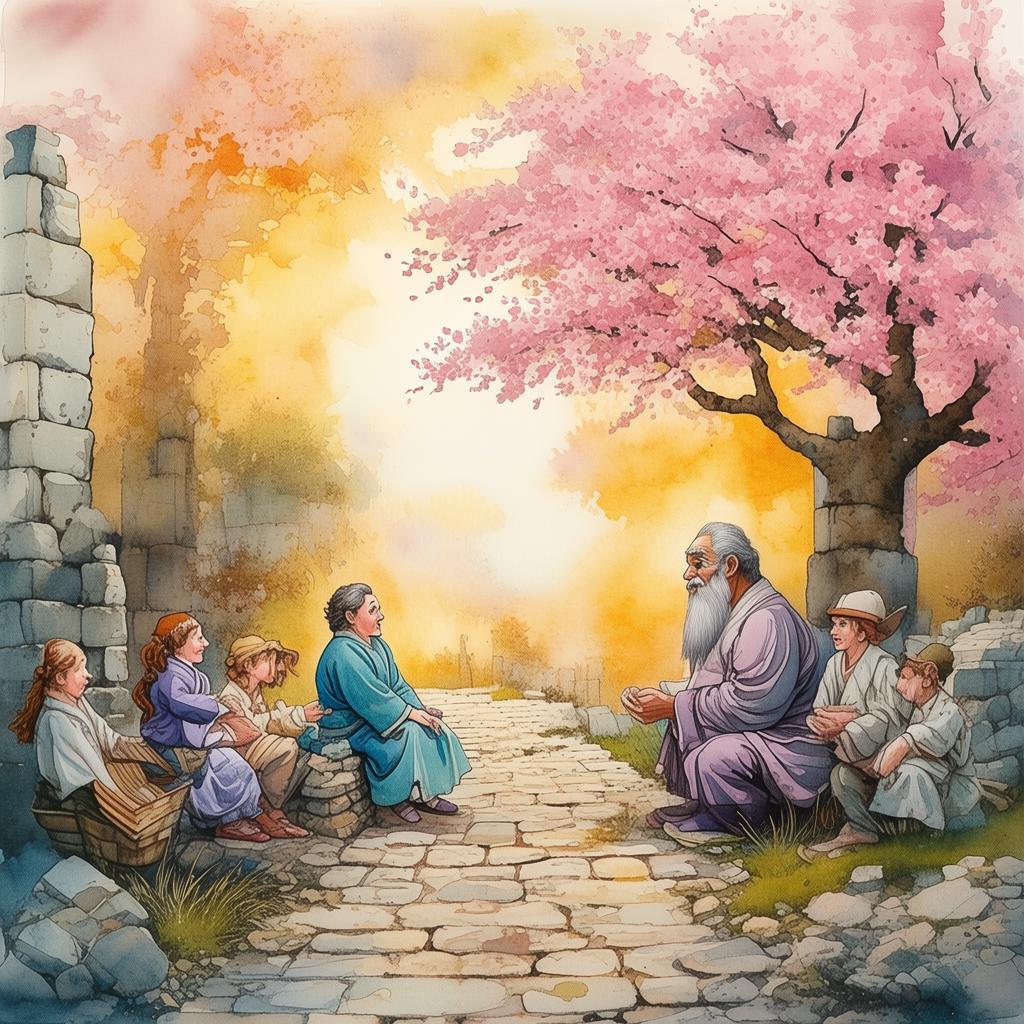
As Sir Cedric stepped back into his own time, he knew that his life had been forever changed. He returned to his kingdom, a kingdom in need of peace and understanding. With the wisdom he had gained, he sought to unite his people, to build a society based on justice and knowledge.
Back on the stage, Émile's song ended, and the audience erupted into applause. The troubadour, with a knowing smile, continued to sing, his melodies echoing through time, his stories of wisdom and love reaching the hearts of all who would listen.
The Bard's Echo Through Time was a tale that would be told for generations, a story of how one man's melodies could transcend time, touching the hearts of all who heard them. It was a story of the enduring power of the human spirit, and the importance of seeking wisdom in all things.
✨ Original Statement ✨
All articles published on this website (including but not limited to text, images, videos, and other content) are original or authorized for reposting and are protected by relevant laws. Without the explicit written permission of this website, no individual or organization may copy, modify, repost, or use the content for commercial purposes.
If you need to quote or cooperate, please contact this site for authorization. We reserve the right to pursue legal responsibility for any unauthorized use.
Hereby declared.
